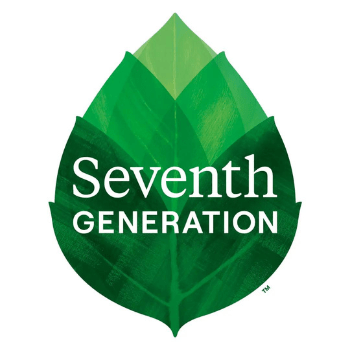A green business model is good for both the company and the planet. From 100% biodegradable products to carbon offsets, these companies are the champs of sustainable business practices.

In an era where environmental sustainability is more crucial than ever, it's inspiring to see companies leading the charge towards a greener future.
Here, we spotlight 17 pioneering green companies that are making significant strides in eco-friendliness and sustainability. These innovators are not just minimizing their environmental footprint; they are also offering products and services that are beneficial for your health and well-being.
With their eco-friendly consumer products, these companies are setting new standards in sustainability, proving that business success and environmental stewardship can go hand in hand.
Join us as we explore how these companies are making a positive impact on our planet and our lives.
Please note that all logos and trademarks displayed on this blog are the property of their respective owners. They are used here solely for the purposes of discussion and commentary.
The 17 Best Green Companies
1. Nike
Nike, an American multinational corporation, leads not just in sales of footwear, apparel, sports equipment, and accessories, but also in environmental stewardship. Besides highlighting green initiatives in their advertising, this industry giant sets a stellar example in eco-friendly practices.
In their quest for sustainability, Nike passionately champions a product line crafted from environmentally-friendly materials, like recycled polyester. Additionally, they're harnessing renewable energy in manufacturing, showcasing a commitment to the planet.
At the heart of Nike's eco-conscious efforts is their "Move to Zero" initiative, a bold response to climate challenges. This commitment involves phasing out single-use plastics on all Nike campuses. Moreover, it sparks vital conversations in the global design community through the innovative Circular Design concept. This approach not only reflects Nike's dedication to sustainability but also inspires a broader industry change.
2. Apple
When we think of eco-friendly companies, tech giants like Apple might not immediately spring to mind. However, nestled in Cupertino, CA, this renowned company diligently focuses on sustainability. Their approach zeroes in on three key areas: reducing climate impact, conserving natural resources, and integrating safer materials in products and workplaces.
In line with this ethos, Apple has launched several wind and solar farms. These green powerhouses energetically fuel their data centers, retail stores, and corporate offices. Transitioning to renewable energy, they set a high bar for environmental responsibility in the tech world.
Moreover, Apple prioritizes material conservation. Through enhanced production efficiency, use of renewable resources, and design of long-lasting products, they significantly reduce waste. This strategy not only preserves materials but also underscores Apple's commitment to a sustainable future.
3. Patagonia
If you're an outdoors enthusiast, you've likely heard of Patagonia, a leading retailer in activewear. Given that outdoorsy individuals tend to be eco-conscious, it's no surprise that Patagonia's corporate philosophy deeply embraces environmental responsibility.
Patagonia actively extends the life of their products by establishing repair centers worldwide. This strategy not only enhances product longevity but also significantly reduces the carbon footprint associated with producing new items.
While embracing the motto "100% For the Planet," Patagonia acknowledges they haven't achieved complete sustainability. They openly admit to using fossil fuels in producing rainproof shells for their coats, reflecting a commitment to transparency in their environmental journey.
4. Starbucks
Many people, when grabbing their coffee-to-go, opt for disposable cups. However, these often contain 5% polyurethane plastic, complicating recycling efforts. As a response, Starbucks, at the forefront of the United States’ second wave of coffee culture, has been proactive.
Not just focusing on cups, this green-minded company also commits to 100% ethically-sourced coffee. Starbucks takes pride in making coffee the first sustainable agricultural product globally. Beyond this, they have pledged to donate 100 million healthy coffee trees by a specific year to farmers impacted by disease and climate change.
Not only is it good for us as a society but it’s good for them for a variety of reasons. Various sustainability efforts can save businesses money, make them more efficient and can improve the quality of the work environment.
Alfred Marcus, Strategic Management and Entrepreneurship Professor, University of Minnesota
5. IKEA
IKEA, a household name for ready-to-assemble furniture and homeware, is also a trailblazer in sustainable industry practices. This Swedish company responsibly sources nearly half of its wood from sustainably managed forests and ensures all its cotton meets the rigorous Better Cotton standards. These standards emphasize reducing energy and water consumption, along with strict regulation of fertilizers and pesticides use.
Powering its stores, IKEA harnesses energy from over 700,000 solar panels worldwide. The company is on a determined path to achieve 100% renewable energy usage, aligning with its commitment to environmental stewardship.
6. Seventh Generation
Since its inception in 1988, Seventh Generation has been on a mission to create a healthy, sustainable, and equitable world for the next seven generations. This commitment shines through in their environmentally conscious products and practices.
Acknowledging the significant environmental impact of product packaging, the company innovates with eco-friendly packaging solutions. These complement their range of plant-based products made from sustainably sourced ingredients, demonstrating a deep-rooted commitment to environmental stewardship.
Following in the footsteps of environmental pioneers like Patagonia, Seventh Generation has set an ambitious goal: to achieve zero-waste status by 2025. This move is a testament to their dedication to leading a green revolution in personal care and cleaning products.
7. A Good Company
A Good Company stands as an eco-friendly challenger to e-commerce giants like Amazon. For founder Anders Ankarlid, green operations mean actively combating climate change, a principle embodied in every product they create.
Their innovative lineup includes the world's first climate-positive notebook made from stone paper and luxury pens crafted from illegal firearms melted down in El Salvador. These unique products reflect a profound commitment to environmental innovation.
What sets them apart is transparency. The company openly shares details about the raw materials and manufacturing processes, ensuring customers are well-informed about the environmental impact of their purchases.
8. Honda
For many consumers, cars and sustainability seem at odds, but Honda is challenging this notion in the auto industry. In a significant move, Honda initiated its Tree Fund Program in 2004 to address growing carbon emissions. This program has successfully planted over 700,000 trees across New Zealand, contributing significantly to carbon sequestration.
Furthering their environmental commitment, Honda aimed to reduce CO2 emissions by 30% across its range of motorcycles, automobiles, and power products by 2021, compared to levels from 2000 to 2020. This goal highlights their dedication to producing more eco-friendly vehicles and products.
In a substantial stride towards renewable energy, Honda has entered a long-term virtual power purchase agreement for wind and solar energy. This agreement is set to cover over 60% of the company's energy needs in North America, marking a major step in Honda's journey towards sustainability.
9. Disney
Disney, a titan in both the animation and film industry, mirrors this stature in its approach to energy efficiency. The company implements zero net direct greenhouse gas policies across all its facilities, actively reducing its environmental footprint. By focusing on cutting down electrical and water usage, Disney effectively curbs indirect greenhouse gas emissions.
Looking to the future, Disney has set an ambitious target: to produce or purchase 100% zero-carbon electricity for all its global operations by 2030. This commitment underscores Disney’s dedication to playing a leading role in global environmental stewardship.
10. New Belgium Brewing
Since its founding in 1991, New Belgium Brewing has emerged as one of the largest craft beer companies in the US and a staunch advocate for environmental protection. Operating from Fort Collins, Colorado, the brewery commits to partnering exclusively with sustainable vendors. Its dedication to environmental stewardship is evident in earning a Platinum-certified Zero Waste Business certificate, successfully diverting 99.9% of waste through recycling.
In addressing the brewing industry's greenhouse gas emissions, New Belgium Brewing actively reduces its footprint. They achieve this through implementing energy-saving practices, producing energy on-site, and introducing an innovative internal energy tax, which incentivizes further reduction in energy usage.
11. Pela
Pela began its journey in 2010, spurred by founder Jeremy Lang's awareness of plastic's detrimental impact on oceans. The company marked a milestone by creating the world's first 100% compostable phone case. Ambitiously, Pela has set a goal to prevent 1 billion pounds of plastic from being produced within the next 5 years.
These innovative phone cases are not only eco-friendly but also comprise 45% plant-based materials, contributing to a significant reduction in plastic usage.
In 2019, Pela took a major step towards environmental responsibility by neutralizing its carbon footprint. This was achieved through purchasing carbon credits, earning them the esteemed Climate Neutral Certificate. As a proud member of 1% for the Planet, Pela dedicates at least 1% of its revenue to supporting environmental causes, furthering its commitment to a sustainable future.
12. Johnson & Johnson
For over two decades, Johnson & Johnson has been at the forefront of environmental sustainability in the personal care and beauty product industry. In 2010, they innovated with the patented Global Aquatic Ingredient Assessment Tool (GAIA), a crucial step in understanding and minimizing the environmental footprint of their products.
Pioneering in eco-friendly practices, Johnson & Johnson was among the first to eliminate plastic microbeads from their cosmetic and personal care products, addressing a critical environmental concern.
Looking to the future, the company sets an ambitious target: By 2025, they aim to exclusively use packaging that is 100% recyclable, reusable, or compostable. This includes their commitment to certified post-consumer and pulp-based packaging, demonstrating a steadfast commitment to reducing their environmental impact.
13. Imperfect Foods
Based in San Francisco, eco-friendly startup Imperfect Foods is dedicated to reducing food waste while making fresh produce more affordable and accessible. They directly buy fruits and vegetables, often overlooked due to cosmetic imperfections, from farms and deliver them to customers at prices averaging 30% lower than traditional grocery stores.
The produce they offer is perfectly safe and nutritious, merely cosmetically imperfect. This approach not only saves perfectly good food from being wasted but also offers a cost-effective alternative for consumers.
Beyond their core mission, Imperfect Foods strives to create an eco-friendly environment and supply chain in every city where they operate. This initiative involves sustainable practices in procurement, transportation, and packaging, contributing to a significant reduction in overall food waste and a smaller carbon footprint in the food industry.
If you think about the question of how do we hedge against climate change risk, it’s natural to think the easiest thing to do is to go long green and short brown companies.
Stefano Giglio, Professor of Finance at Yale
14. Salesforce
Salesforce, a cloud-based software giant, is not only known for its customer relationship management services and business applications but is also making strides in environmental sustainability. In 2018, the company took a significant step with the Step Up Declaration, a commitment to harnessing new technologies to lower greenhouse gas emissions across various economic sectors.
Salesforce's ambitious goals include forming partnerships with eco-friendly suppliers, integrating sustainable materials and designs in their building practices, and fostering environmental innovation at their headquarters. These initiatives reflect their dedication to blending business success with ecological responsibility.
15. Native Shoes
Leather shoes, reliant on carbon-intensive animal farming, stand in stark contrast to Native Shoes' innovative approach. Similarly, most synthetic shoes, non-recyclable and harmful to the environment, highlight the need for change. Native Shoes steps up to this challenge by employing unique manufacturing techniques and vegan materials. They revolutionize the industry not only in material choice but also through their proactive recycling program. Old Native Shoes are collected and repurposed into insulation and playground flooring, significantly reducing manufacturing waste.
A standout example of their commitment is the limited edition Plant Shoe. Touted as 100% biodegradable, this shoe is crafted entirely from natural materials, offering a compostable end-of-life option.
16. Numi Organic Tea
At Numi Tea, sustainability is integral, from the root to the branch. This commitment extends beyond their renowned first-class organic tea. They adopt sustainable packaging, meticulously track CO2 emissions during production, and make significant donations to environmental nonprofits, demonstrating their holistic approach to sustainability.
Furthering their impact, Numi Tea spearheaded the formation of OSC2 (One Step Closer to an Organic Sustainable Community). This coalition of CEOs and leaders from the natural products industry collaborates to not only enhance their sustainable products but also to propagate eco-friendly practices across various industries.
17. Who Gives A Crap
Who would've imagined that the COVID-19 pandemic would thrust toilet paper into the limelight as a sought-after commodity? Recognizing its frequent use and immediate disposal, it's crucial that toilet paper is environmentally friendly.
Enter Who Gives A Crap, an Australian trailblazer producing nature-friendly toilet paper. Their products, proudly proclaimed as “good for your bum and great for the world,” are 100% plastic-free. Customers can choose between two sustainable varieties: 100% recycled paper or bamboo. This approach significantly reduces environmental impact, from saving trees to lowering carbon emissions.
Moreover, the company champions social responsibility, donating a substantial 50% of its profits to build toilets in impoverished communities worldwide. This initiative disrupts the conventional 'take-make-waste' model, transforming it into an opportunity for positive global impact.
FAQ
To have a green business means that some or all aspects of the business are based on eco-friendly principles. This includes sourcing of raw materials and the supply chain, manufacturing process, packaging, but also the administration and post-consumer responsibility.
Yes, a green business is profitable. Sustainability policies can easily be adjusted to transform businesses into more profitable entities. A green company can make a more successful entrance into a new market and attract more investors. Green companies are also more successful at keeping pace with increasingly stricter environmental regulations.
Companies that use green marketing are those that highlight the environmental benefits of their products or services. Among the companies that are known for the best examples of green marketing are Patagonia, Starbucks, Nike, IKEA, and Timberland.
The benefits of going green for a business include many advantages, from bottom-line cost savings to unfathomed marketing opportunities. Green companies reduce waste and decrease costs while being able to apply for eco-friendly incentives and rebates. they often promote a healthier work environment and attract eco-conscious customers.
Yes, going green can be expensive for business initially. However, the cost reductions in energy savings, paired with tax benefits can help companies mitigate the costs of going eco-friendly. Many companies succeed to cover the costs of going green through recycling or optimizing their energy and water use.
The problems with going green are most often related to costs. For some companies, the switch to sustainability can be expensive to the point that it doesn't offset the initial upfront costs. Transition to green materials can sometimes lead to higher costs in the production process.
Companies are going green in more than one way. The two biggest initiatives are reducing energy, which also includes switching to renewable, and reducing waste at the office and production lines. According to McKinsey & Company, 63% of companies are reducing energy consumption and 61% of them are reducing waste.
No, Tesla is not a green company. Although Tesla makes electric cars that are generally better for the environment, the company does not report enough details about the production of its vehicles or sourcing of its products for people to get an idea about its sustainability.
The brands that go green make up all the companies in this list and many more. They include Nike, Honda, Johnson & Johnson, Starbucks, etc. There are also many companies that didn't make it to the list, such as Toyota, Google, McDonald’s, and United.
Starbucks is going green by identifying key areas in which it can make a big impact by 2030. It includes replacing disposable with reusable packaging and investing in innovative water conservation and reforestation practices. Starbucks is also buying only 100% ethically-sourced coffee.
You become a green entrepreneur by implementing environmentally-friendly principles in your company. You can try to reduce environmental impact by partnering with a recycling company, switch to green energy, or develop environmentally-safe products and services.
A green business model is a business model that enables companies to align their operations with eco-friendly outcomes. It helps businesses offset their environmental impact through greenhouse gas emission policies and socially-responsible initiatives.
Going green is reducing one’s environmental footprint and living a healthier lifestyle. Generally, it means wasting less natural resources, consuming less energy and water, limiting pollution and recycling, reusing, and composting waste. Going green is important for conserving the planet’s resources.
Yes, going green actually helps the environment. It reduces the amount of pollution in the soil, water, and air. By improving our energy efficiency, using renewable energy sources, recycling, and reducing waste, people can limit the number of pollutants that are released into the environment.
Final Thoughts
A green company is an umbrella term that covers different business practices, initiatives, and goals.
Some companies start out as “green” enterprises from scratch, developing eco-friendly product alternatives, or offering energy-saving services and solutions across a range of industries.
However, a company doesn't have to be in the eco-friendly industry to install solar panels, switch to low-flow plumbing, recycle its manufacturing waste, donate to environmental non-profits, or support local green initiatives.
If you can identify with green values and would like to be a part of such a company, why don’t you check our Green Jobs board for the available jobs in your area?
Find more jobs in green companies by category, by city, or by state by checking out more sustainability jobs.





















Pingback: Green for Profit or Green for the Environment? – My Marketing Blog
Pingback: Patagonia Founder Donated Entire Company Worth $3 Billion To Fight Climate Change - ecodaily.org
Pingback: 8 Easy Green Ways to Make Money - Off Hour Hustle